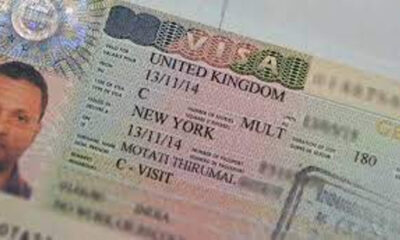Oppotunities
Japa: Russia faces labour shortage, appeals for migrants

Russia is turning to migrants to help address a growing labour shortage caused by its shrinking domestic workforce. Kremlin spokesperson Dmitry Peskov emphasized the urgency of migration in a recent interview with state news agency RIA Novosti, describing it as essential for the country’s development.
“We have a tense demographic situation. We live in the largest country in the world, but there aren’t that many of us,” Peskov said, highlighting the need for a strong labour force to support economic projects and development.
Legislative Moves to Address Demographic Challenges
This call for migration comes alongside recent legislation passed by Russia’s parliament banning “child-free propaganda.” The law effectively outlaws any promotion of not having children, aiming to address Russia’s longstanding demographic issues, which have worsened in recent years, particularly since the conflict in Ukraine.
“We need a labour force in order to have dynamic development and carry out all our development projects,” Peskov stated, reinforcing the government’s stance on welcoming migration.
Population Decline and Economic Strain
Despite efforts to encourage large families with financial incentives such as generous payouts and mortgage subsidies, Russia’s population has failed to recover since the Soviet era. Anti-migrant sentiments persist, particularly towards workers from former Soviet republics in Central Asia, who are crucial to key sectors of Russia’s economy.
Recent demographic challenges include a persistently low birth rate, the impact of Covid-19, and the flight of hundreds of thousands of men to avoid military conscription during the ongoing war in Ukraine. In 2023, Russia’s fertility rate fell to 1.41 births per woman, significantly below the replacement rate of 2.0.
Birth Rate Decline
Official figures from Russia’s national statistics office, Rosstat, show that between January and September 2024, the country saw 920,200 births—a 3.4% drop compared to the same period last year. This marks the lowest number of births since the 1990s, further underscoring the scale of Russia’s demographic crisis.
In the face of these challenges, the Kremlin’s reliance on migration is seen as a necessary step to fill labour gaps and maintain the country’s economic stability.























